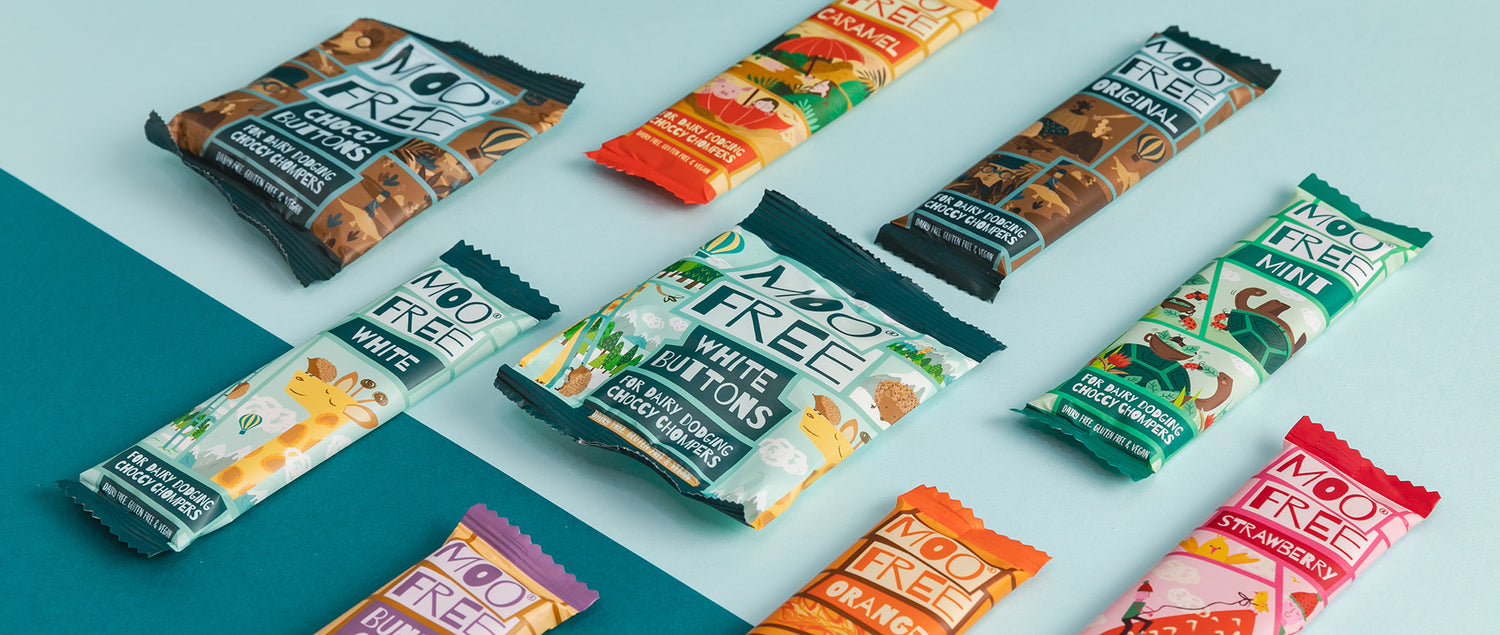Have you heard of Organic September? Every year, The Soil Association collaborates with the Organic Trade Board and organic movers and shakers across the industry to join together with one message: Nature has the answer...and the answer is organic.
Here at Moo Free, we recognise the enormous value of organic produce and we are proud of our range of fabulous organic vegan chocolate. You probably know that all of our delicious choc is ethically sourced but we were keen to add an organic chocolate range because of all the wonderful benefits of growing organically.
Organic September presents a perfect opportunity to talk about organic farming; what it is and why it’s beneficial to the planet, to growers and to you. Let’s have a look at some of the facts surrounding organic farming.

It takes two years to convert to an organic farm in the UK
Farmers must register with an organic control body such as Organic Farmers & Growers or the Soil Association if they want to sell organic products. The farm then has to be inspected. The conversion process takes around two years, depending on the type of land and crops being grown. The farm then has to undergo annual inspections by a trained inspector. This ensures that strict organic standards are met.
Just 1.4% of the UK's food and drink is organic
The organic sector accounts for 1.4 % of the UK's multi-billion pound food and drink market, according to the National Farmers Union. A lot of the organic food that we eat in the UK is imported - so there’s definitely scope to grow more. Anyone want to try their hand at farming?
Yes, organic food can be more expensive – here’s why
For companies like Moo Free, trying to get the balance right between doing what’s best for the planet and also making sure that our delicious ‘free from’ and vegan choccy is affordable for everyone can be very hard!

Organic crops cost more to produce. The growing process is more labour intensive because pests and weeds can't simply be sprayed away. Some of the practices used in organic farming are ancient practices that have long been known to be beneficial to the land and the eco-system – however, many have been abandoned in mainstream farming because they are too slow and too costly.
A lot of work goes into organic food!
Organic farming is better for the environment
Organic farming presents a better option for animals and biodiversity, soil and the fight against climate change. With the absence of some of the most harmful pesticides, there is a greatly reduced risk of groundwater around organic farms becoming polluted. Farms that only use approved pesticides see wildlife flourish, including water creatures, important wildflowers and our friends, the bees. An article in the Guardian suggested that buying organic produce could help save the insect population.
Another very interesting reason why organic farming is great for the environment is that organic farming practices, such as returning crop residues to the soil and the use of cover crops, allow carbon dioxide to be stored in the soil, rather than being released into the atmosphere as greenhouse gas.

Organic farming is better for growers
Farmworkers on non-organic farms, especially smaller farms and farms with less hi-tech equipment can suffer from over-exposure to dangerous pesticides. Constantly being exposed to some types of pesticides has been shown to cause long-term health problems.
Organic may be better for you
As yet, studies to detect long-term health problems associated with consuming food grown sprayed with pesticides are inconclusive. However, according to Go Organic UK, ground-breaking research by Newcastle University in 2014 found that organic crops are nutritionally different. The study concludes that levels of key antioxidants are up to 60% higher than in non-organic crops. The same article says that a 2016 study found that both organic meat and milk contain around 50% more beneficial omega-3 fatty acids than non-organic products.
Celebrate organic!

With all the bad news in the world right now, we think that increasing demand for organic goods is a reason to celebrate! The more initiatives there are that help the planet, the better.
If you’re a business or a retailer selling organic goods, you can get some some awesome Organic September assets to use on your social media or website from The Soil Association. If you’re not a business, why not show your support anyway and tweet or post about Organic September when September comes?






